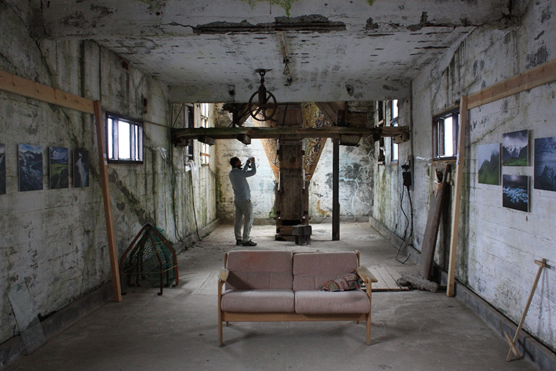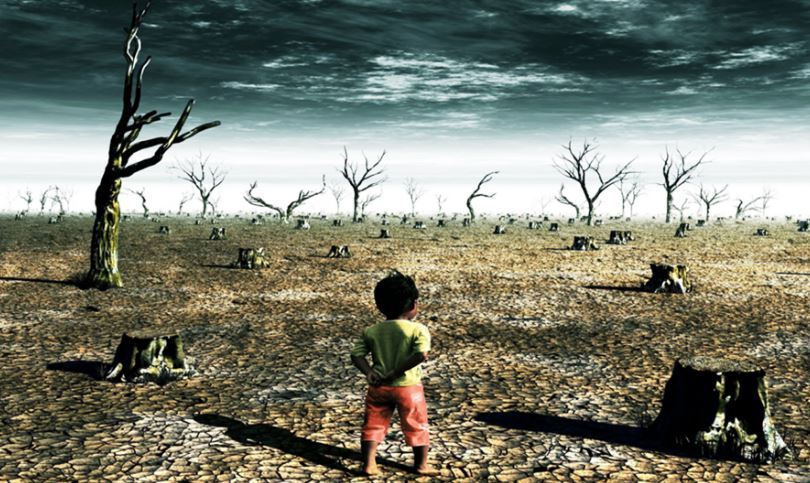Despite its current decline due to the COVID-19 pandemic, the global tourist industry remains a key power reshaping landscapes and communities worldwide. For travellers, tourism can define their relationship to the environment. For destinations, the industry can create and sustain vital livelihoods. Yet it also has immense impacts on ecosystems and societies around the world. In this seminar, we will take a critical look at the societal and environmental issues arising from a range of tourist practices. We will think about various modes of tourism: from globe trotters, skiing, and beach holidays to dark tourism, wildlife watching, and ecotourism. Considering case studies from around the world, we will explore a range of issues including: the transformations experienced by the environments, cultures, and communities that support tourism; the relationships between different forms of privilege and access to nature via tourism; or the control and commodification of landscapes, cultural heritage, and even disaster. Finally, we will discuss the way that the pandemic has brought these issues to light and debate whether and how the industry could change in the future.

- Trainer/in: Anna Antonova
- Trainer/in: Gesa Lüdecke
- Trainer/in: Maria Bekiari
- Trainer/in: Maria Bekiari
- Trainer/in: Julia Leitert
People who engage in environmental studies often strive not only to understand the world but to improve
it. In response, this seminar introduces utopianism as a methodical framework for making the world a better
place. Utopias, in a traditional sense, are imaginary better places. So the task at hand might be re-described
as making our actual world more closely resemble a utopia. The question is, how, and also why (this utopia
and not a different one)? Based on relevant readings, the introductory section of the course traces the
theory, history, and ethics of utopianism to some of its current incarnations including environmentalism
and climate activism. An excursion will provide an opportunity to discuss our questions in relation to a
concrete utopian project in the Munich region, with the people engaged in it. Subsequently, small teams of
students will work on cases of their own choosing. The goal is to co-create an e-book of essays, interviews,
etc. by the end of the semester. As in a writing group, weekly sessions will serve to discuss drafts and to
address questions of content, method, form, and language as needed. Complete drafts of student
contributions are due in late January, and the book will be put together in the semester break. This gives us
time, in the final two sessions, to synthesize our findings, re-consider readings in their light, and reflect on
our own experience of co-creation.
- Trainer/in: Malin Klinski
- Trainer/in: Julia Leitert
- Trainer/in: Philipp Thapa
One socio-ecological phenomenon that characterises our times is an ever increasing displacement of people due to environmental causes. Migration processes induced by environmental factors (such as desertification and water scarcity, environmental destruction through natural catastrophes, sea level rise, and the like) are covered and addressed in a variety of media. In this seminar, we will look at the figure of the environmental refugee and explore its representation in different media. We will read non-fiction as well as fiction texts; discuss representational strategies in documentary film and fiction film; and take a look at poetry performance as a form of political activism. In our engagement with the figure of the environmental refugee, we will also address its discursive embeddedness and critically assess who uses the figure of the environmental refugee, in which way, and to what political ends.
All seminar attendees are expected to actively participate in the seminar. This includes regular attendance; the preparation of the assigned reading/viewing materials before each session, which we will then work on and discuss as a group; and the submission of two response papers (500-700 words each) during the semester. Participants conclude the seminar with an individual paper, which is either an extended reflection on their presentation topic (approx. 3.000 words) or a seminar paper (4.000-6.000 words).
Participants in the seminar are encouraged to purchase the following texts as a hard copy. Ideally, buy the exact edition given here, as this will make it easier to talk about the texts:
Bacigalupi, Paolo. The Water Knife. Vintage, 2015. ISBN: 978-0-8041-7153-3
Habila, Helon. Oil
on Water. Penguin, 2011. ISBN: 978-0-141-04684-6
- Language: English
- ECTS: 6 ECTS Points
- Timeframe: Nov 2, 2020 – Feb 8, 2021; 2h/week, online sessions
- Dates: Monday, 2pm-4pm
- Location: online (ZOOM / Moodle)

- Trainer/in: Hanna Hörl
- Trainer/in: Hanna Straß-Senol
effects of climate change. The debate focusses on mitigation measures to reduce anthropogenic emissions of
greenhouse gases, to improve the earth’s capability to absorb carbon from the atmosphere or to sequestrate
carbon with technical measures. However, already today, mainly persons in the Global South suffer from negative effects of climate change. For example, persons living in small island developing states (SIDS) have to cope with a rising sea level, threatening their live, property and basis of existence. Affected local persons implement adaptation measures to reduce adverse effects of climate change, like constructing dams or move to higher situated areas. Often, local governments and persons are not able to pay for the costs of the necessary adaptation measures.
Climate science provides evidence that greenhouse gas emissions emitted by the Global North cause adverse
effects of climate change in the Global South today. However, international political efforts to provide adaptation finance are limited. The amount of adaptation finance provided by international donors is currently too low to meet the local needs to adapt to climate change. Even though the available amount of adaptation finance increases, the adaptation finance gap is expected not to decrease, as the pace of climate change and its impacts are expected to increase. A possibility to deal with the adaptation finance gap is to prioritise between different countries when distributing scarce financial means for adaptation. The prioritisation of the distribution of scarce adaptation finance to the Global South raises several normative questions. Criteria for prioritisation of adaptation finance in the debate are vulnerability and efficiency or cost-effectiveness and recently the degree of democratisation of a country.
- Trainer/in: Malin Klinski
- Trainer/in: Alexander Schulan
Ideas
of property and the commons can be found everywhere in environmental thought
and governance. But like all ideas, they have multiple meanings, each with
far-reaching real-world implications. Throughout history, different definitions
of property and the commons in natural space have alternatively empowered or
disempowered individuals, communities, and nations, as well as significantly
altered local and global environments. In this seminar, we will study a range
of ideas about property and the commons — from Locke’s notion of property,
“tragedy of the commons”, and enclosure, to ecofeminist commoning, climatic
commons, and more-than-human property rights — and discuss their relationship
to historic and contemporary issues of environmental justice.
- Trainer/in: Anna Antonova